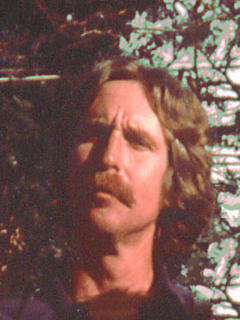I just finished with my (almost) annual physical. Results: excellent. As the Dr. said, "You should thank god for your health. Worth more than money." A good thing too, because I have lots of good health (thank god), but not lots of money. Along with what they call a check-up here, I got a free breakfast. Free in the sense that it was included in the price of the examination. About two kilocalories of good old American style breakfast, only without the potatoes. Within minutes, I was hungry for more. It's probably going to take all day to walk that free breakfast off.
Got me to thinking about that old, conventional wisdom. "Breakfast is the most important meal of the day." "It gives you energy so you can do a good day's work." In keeping with this recieved wisdom, millions of Americans, and people worldwide, eat good hearty breakfasts, then get into their cars, drive to work, and sit at a desk for the rest of the day. Except for the lunchbreak, when they eat another good hearty meal. Go back to the desk and sit some more. What happens to all that energy you consumed to allow you to do a good day's work? Gets turned into fat, is what. So it will be available if you ever decide to do a good days work. Work in the sense of the world of physics. Work = Force X Distance; something like that. Exertion. Exercise. Etc. The kind of work most of us do not do in this post-industrial society except as a hobby.
I used to be a member of the Seattle downtown Y. A wonderful old 1914 vintage building, with classic but worn tile floors, a great basement natatorium, great gym facilities. Even had convertible squash/handball courts, you could reconfigure with a hand crank on the back wall. In the mens locker room there was a classic old balance type scale; also vintage 1914 I'm guessing. On the pedestal of the scale was an old ideal height/weight table. For me, the correct weight (it said) was around 215 lbs. I recall also that the table showed that a woman 5'6" should weigh around 145-150. Doctors today say those weights are too high, by about seventeen per cent. How come our ideal body sizes have changed? I don't think it's so much in response to the supermodel women in the fashion magazines. You know, the ones who look like one woman famines? I think it has more to do with weight trend than with actual weight. Today, the problem is to avoid gaining weight. Ninety years ago, the problem was more likely to avoid losing weight. That healthy five foot six woman who weighed one-forty-five was well nourished, and had the strength and stamina do do a day's (1914 day's) work. Before the advent of all the labor-saving devices, which aren't labor saving at all - they just shift the labor from actual labor to working longer hours at a desk to make the money to buy the devices - a work day involved physical activity. Laundry meant washing the clothes, not dropping them into a machine. If you wanted to eat some ice cream, you'd better figure on some serious cranking on the ice cream machine. Probably, you'd have to expend more calories making the desert than you'd get from eating it. So, the problem, if problem it was, was eating enough food to keep your weight up, rather than eating little enough food to keep your weight down. Calories were in short supply rather than too easily got.
Conclusion: If you're going out into the fields to pick, dig, hoe, plow, lift, carry, sweat and strain, eat a big ol' two thousand five hundred calorie stick-to-your-ribs breakfast; if you're going to sit at a computer (as I am doing at this very moment), eat a two hundred calorie breakfast. That's enough energy for sitting down. Or, if you're worrying about your weight compared to your height, find a scale with a hundred year old weight table...
Wednesday, October 13, 2004
Subscribe to:
Post Comments (Atom)


No comments:
Post a Comment